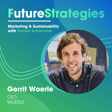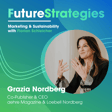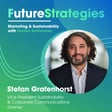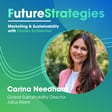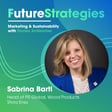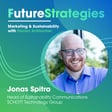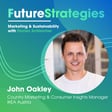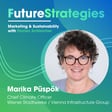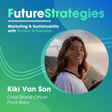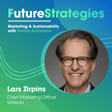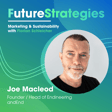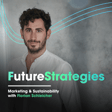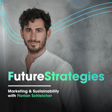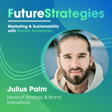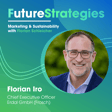
🪄 "The Magic of Brands" - Matt Johnson on how marketing rewires our brain and what it means for sustainability
Matt Johnson is a speaker, writer, and researcher, specializing in the application of psychology and neuroscience to branding. His work has probed the science of brand storytelling, experiential marketing, and consumer decision-making. He is the author of the top-selling consumer psychology book, Blindsight: The (mostly) hidden ways marketing reshapes our brains.
He is a contributor to major news outlets including Psychology Today, Forbes, and BBC on a range of topics related to the human side of business. He also consults brands like Nike and is an instructor at Harvard University’s Division of Continuing Education.
When it comes to sustainability here are two articles he recently wrote:
- To Sell Sustainable Products, Go Beyond Sustainability Marketing
- Morality has a Branding Problem: The Tragedy of Vegan Meat Brands
Are you curious to make your company’s marketing ready for the future? Then I have the some simple and exciting options for you:
First, this is exactly what I do for my clients - I help them build their future strategies with workshops and coaching sessions.
I also have a very simple entry offer for founders and aspiring marketing experts: The Simple & Sustainable Marketing Academy, with a ridiculously cheap entry ticket price, because I love sharing what I have learned.
And if you enjoy reading: Check out my newsletter where I write about marketing, strategies and sustainability available every two weeks in the FutureStrategies newsletter.
About Florian Schleicher: I'm a marketing strategist - over the last 15 years I've led and helped shape marketing at McDonald's, Greenpeace and Too Good To Go. Now I help forward-thinking companies take their marketing to the next level.
With FutureS, the Impact Marketing Studio, I help brands achieve their goals and sustainable growth. All without the usual hustle.
